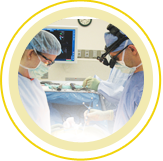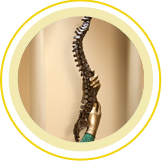- Pay Attention to your Body: If something you are doing causes your back to hurt, stop and rest or stop altogether. Whether it is a particular exercise, prolonged sitting, bending, or twisting, listen to your body’s signals. Pain is a warning. Discuss the activity with your doctor or physical therapist before proceeding.
- Sit and Sleep Comfortably: Be sure that your back and neck are properly supported when you sit or sleep. When you sit, make sure your lower back is supported. Talk to your health care provider about choosing an appropriate mattress and pillow. You can upset the alignment of your spine if a mattress is too soft, or a pillow too high.
- Lose Weight: If your weight is causing excessive pressure to your spine, weight loss can reduce your discomfort.
- Lift Properly: Do not lift heavy loads by placing the pressure on your lower back. Use your legs to lift, and always bend your knees so your arms are at the same level as the heavy object you plan to lift. This simple technique will save your back unnecessary wear and tear.
- Avoid Osteoporosis: Talk with your physician about combating the effects of osteoporosis – bone thinning. Possible treatments include weight-bearing exercise, adequate calcium and vitamin D, and hormone replacement therapies.
News & Events
- Arthritis
- Back Pain
- Back Surgery
- Collapsed Disc
- Degenerative Disc Disease
- Fibromyalgia
- Herniated Disc
- Max Cohen MD
- Neck Pain
- News
- Osteoporosis
- Physical Therapy
- Pinched Nerve
- Published Articles
- Ruben Torrealba MD
- Sciatica
- Scoliosis
- Spinal Cord Compression
- Spinal Fusion
- Spinal Stenosis
- Spine Injuries
- Spine Injury Prevention
- Spine Tips/FAQS
- Success Stories
- The Surgeon's Perspective
- Whiplash



